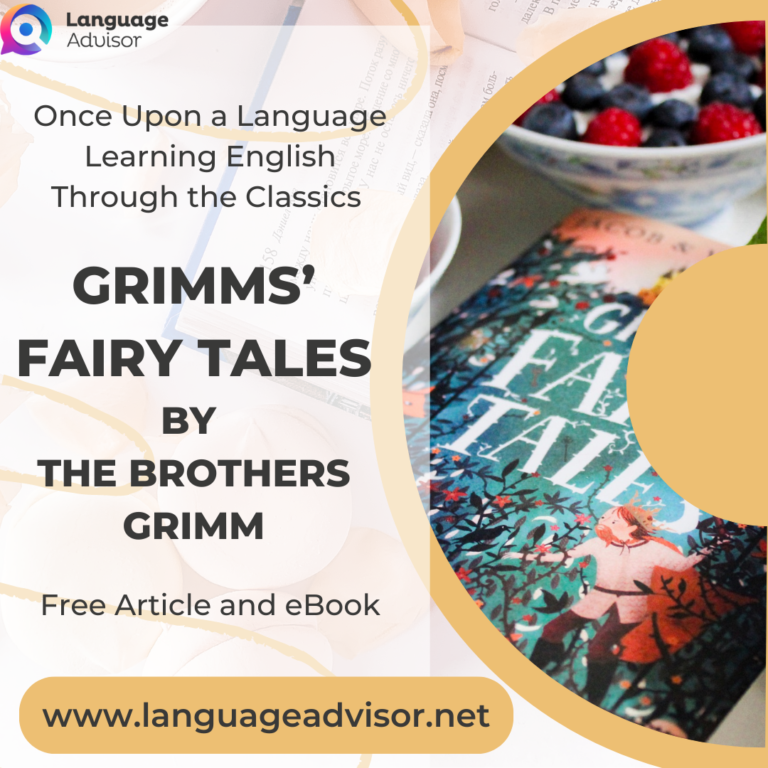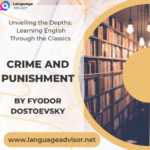Anna Karenina – Embracing Russian Literature: Learning English Through the Classics
Anna Karenina

Embracing Russian Literature: Learning English through “Anna Karenina” by Leo Tolstoy
“Anna Karenina,” penned by the iconic Russian author Leo Tolstoy, is a literary masterpiece that not only offers a profound exploration of human emotions but also serves as an invaluable resource for learning and enhancing English language skills. In this blog post, we delve into the ways immersing ourselves in “Anna Karenina” can unlock the doors to linguistic growth, enabling us to master English while indulging in the timeless tale of love, society, and self-discovery.
Expanding Vocabulary
Tolstoy’s magnum opus presents readers with a rich tapestry of words and phrases, illuminating the beauty and complexity of the English language. By immersing oneself in “Anna Karenina,” readers encounter a wide range of vocabulary, from everyday words to eloquent expressions. The novel’s depiction of 19th-century Russian society provides a platform to learn words related to aristocracy, societal norms, and interpersonal relationships. Embracing the novel’s extensive lexicon allows learners to expand their vocabulary, enrich their linguistic palette, and communicate more effectively in English.
Deepening Reading Comprehension
“Anna Karenina” challenges readers with its intricate plotlines, nuanced characters, and philosophical undertones. Engaging with the novel’s complex narrative enhances reading comprehension skills, enabling readers to delve into the depths of Tolstoy’s storytelling and extract meaning from layered passages. The practice of understanding and interpreting complex texts improves overall comprehension abilities, fostering a deeper understanding of English as a whole.
Enhancing Writing Skills
Tolstoy’s elegant prose and meticulous attention to detail provide an invaluable opportunity for learners to refine their writing skills. By immersing themselves in the novel, readers can absorb the author’s impeccable sentence structure, descriptive language, and character development. This exposure to high-quality writing cultivates an intuitive understanding of effective writing techniques, fostering clarity, coherence, and creativity in the learner’s own written expression.
Developing Cultural Insight
“Anna Karenina” not only offers a captivating story but also provides a window into Russian culture and society of the 19th century. Exploring the novel’s themes, social dynamics, and historical context cultivates cultural awareness, enabling learners to navigate cultural nuances and communicate with sensitivity. By immersing themselves in Russian literature, learners gain a broader perspective, appreciating the interplay between language, culture, and the human experience.
Stimulating Critical Thinking
Tolstoy’s exploration of complex moral and philosophical dilemmas in “Anna Karenina” stimulates critical thinking. The novel challenges readers to examine characters’ motives, ponder societal expectations, and grapple with profound existential questions. Engaging with such themes nurtures analytical skills, encourages independent thought, and equips learners with the ability to articulate their ideas and opinions in English with depth and clarity.
Conclusion
“Anna Karenina” stands as a testament to Leo Tolstoy’s literary genius, captivating readers with its timeless tale of love, tragedy, and societal complexities. By immersing ourselves in this profound work of Russian literature, we embark on a transformative linguistic journey, expanding our vocabulary, enhancing reading comprehension, refining writing skills, deepening cultural insight, and fostering critical thinking. So, embrace the power of “Anna Karenina” and let Tolstoy’s mastery guide you on your path to mastering the English language, while unraveling the intricacies of the human condition along the way.





Anna Karenina
BROWSE THE EBOOK





This eBook is designed and published by Planet PDF. For more free
eBooks visit the Web site at http://www.planetpdf.com/.





IF YOU ARE INTERESTED IN BUYING THIS BOOK, CLICK ON THE BUTTON BELOW





















